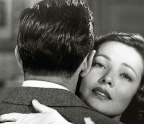
An-My Lê and Pao Houa Her are two photographers addressing fiction and truth in war and its aftermath, and the marks—or lack of them—left by migrant and refugee communities on the American landscape.
Lê’s series Small Wars (1999–2002) restages scenes from the Vietnam War with reenactors, creating images that, at first, seem to offer journalistic evidence, but on examination open a strange conversation about that war and its memorialization. Her’s series Attention (2015) shows Hmong veterans in military regalia, and if they look a little showy that might be because the regalia was purchased online or given to each for their service in the Secret War in Laos—a community honoring itself for contributions the US government refuses to recognize.
More recently, Lê’s series Silent General (2015–ongoing) visits farms in California, pipelines in Texas, yards and churches in Louisiana, and the United States–Mexico border—sites of contested historical and political discourse, especially after the 2016 election, where open skies and sunshine only underscore how hard it is to make a single meaning of them. Her’s latest series, Mt. Shasta (2021–22), capture traces of Hmong farmers’ makeshift marijuana cultivation sites in that harsh and beautiful California landscape—not unlike the mountains of Laos. Both photographers, of different generations, take something we think we know about the United States and ask us to think deeply, to not only expand what’s recorded as history but examine the lenses through which we define history.






